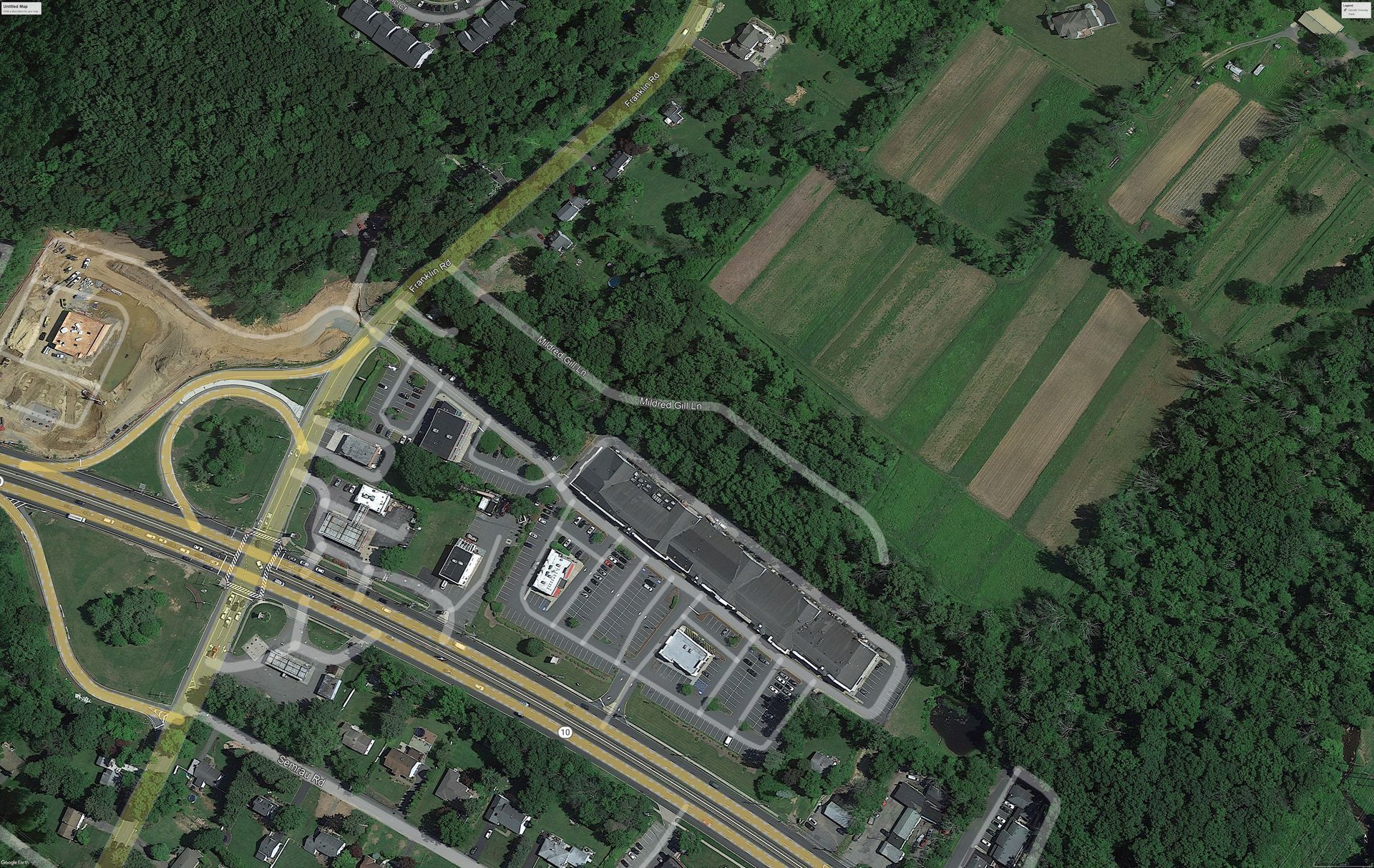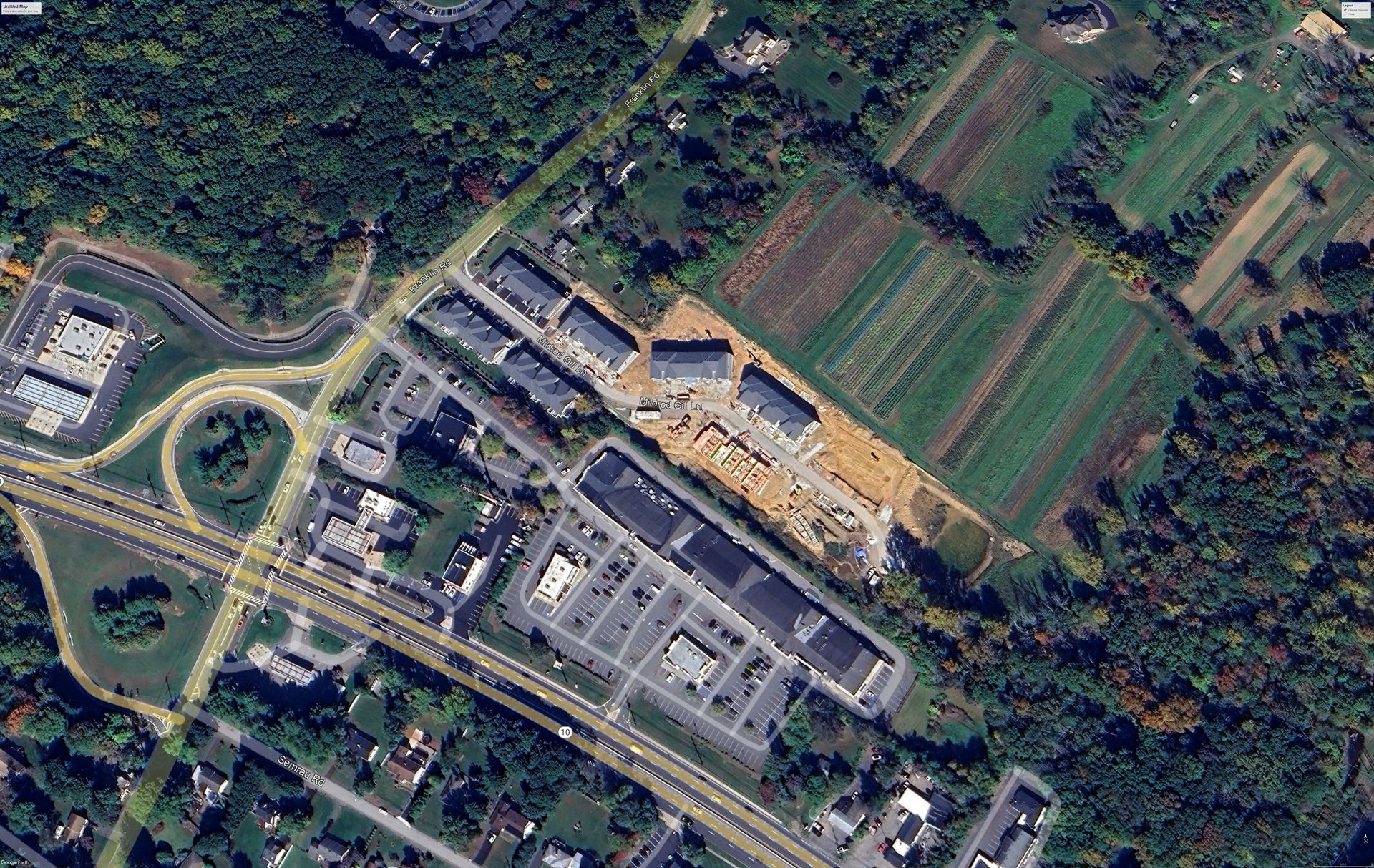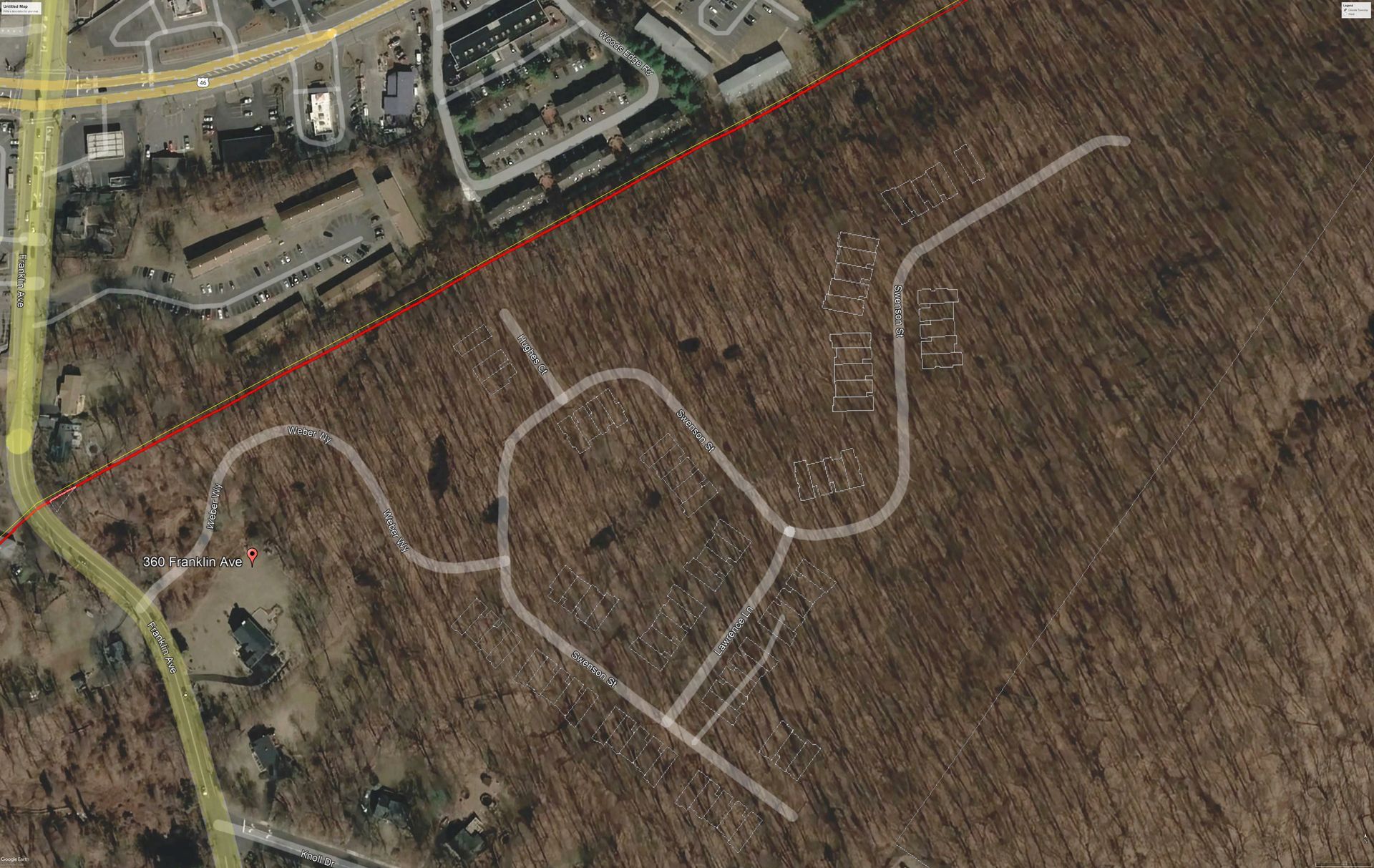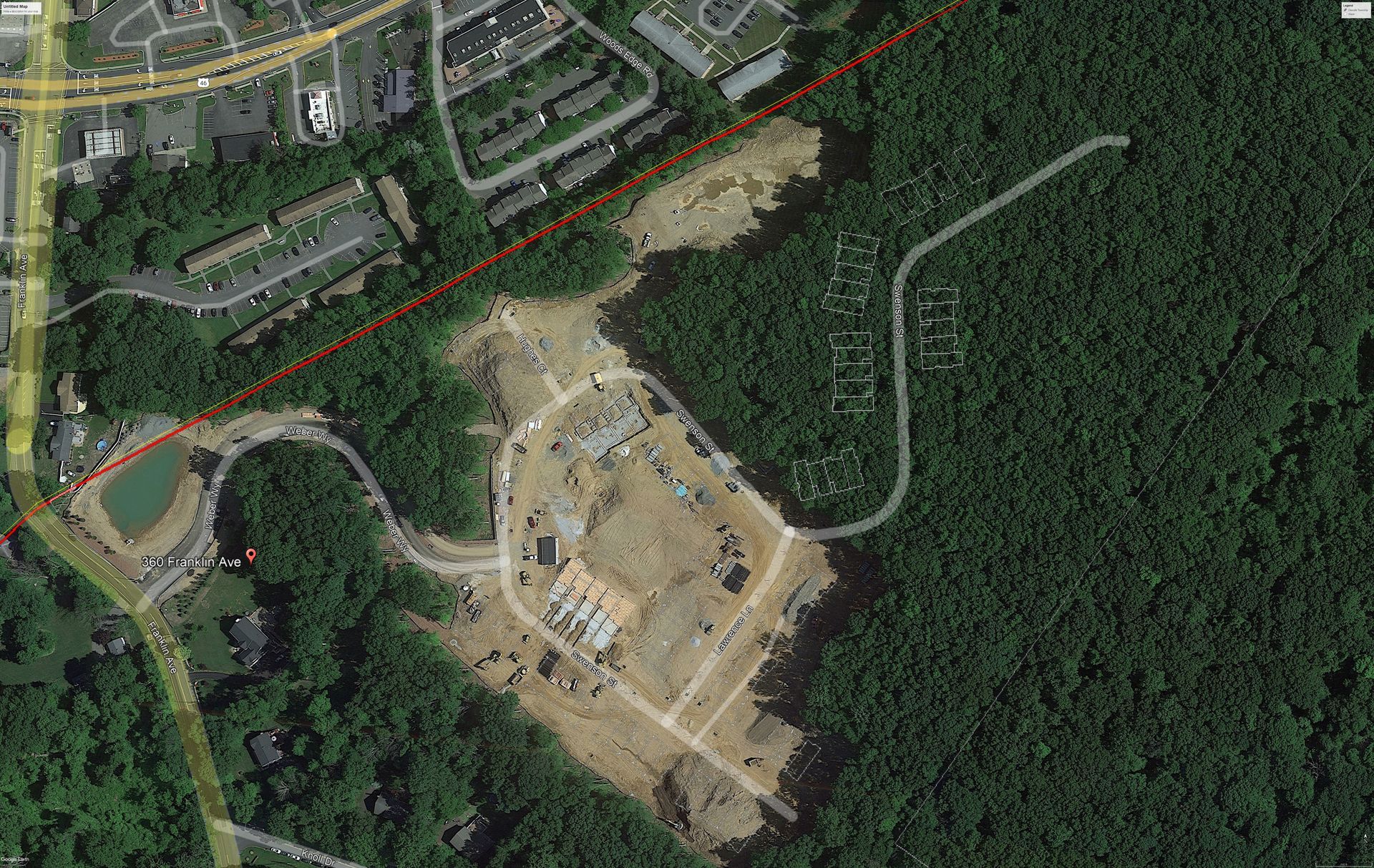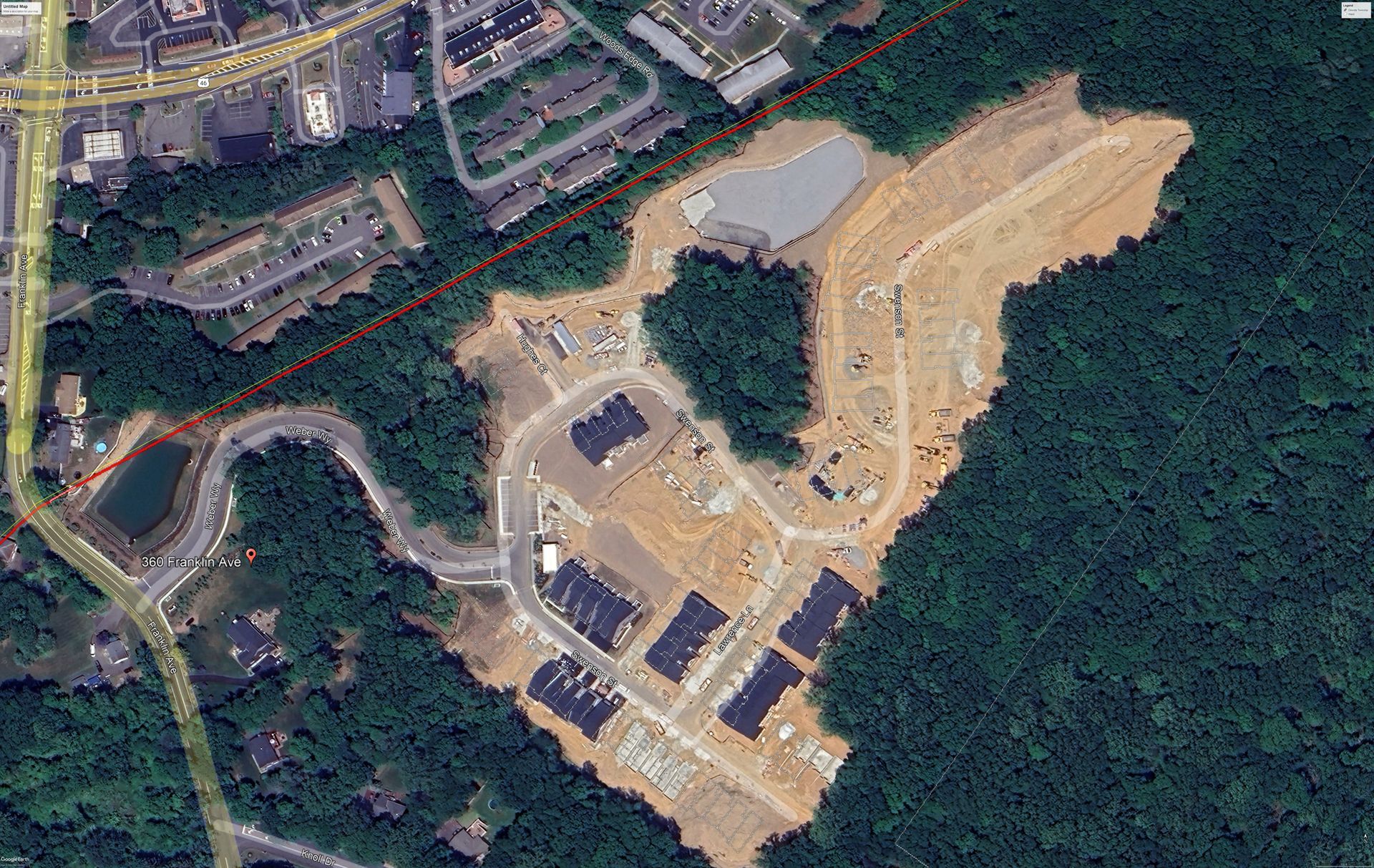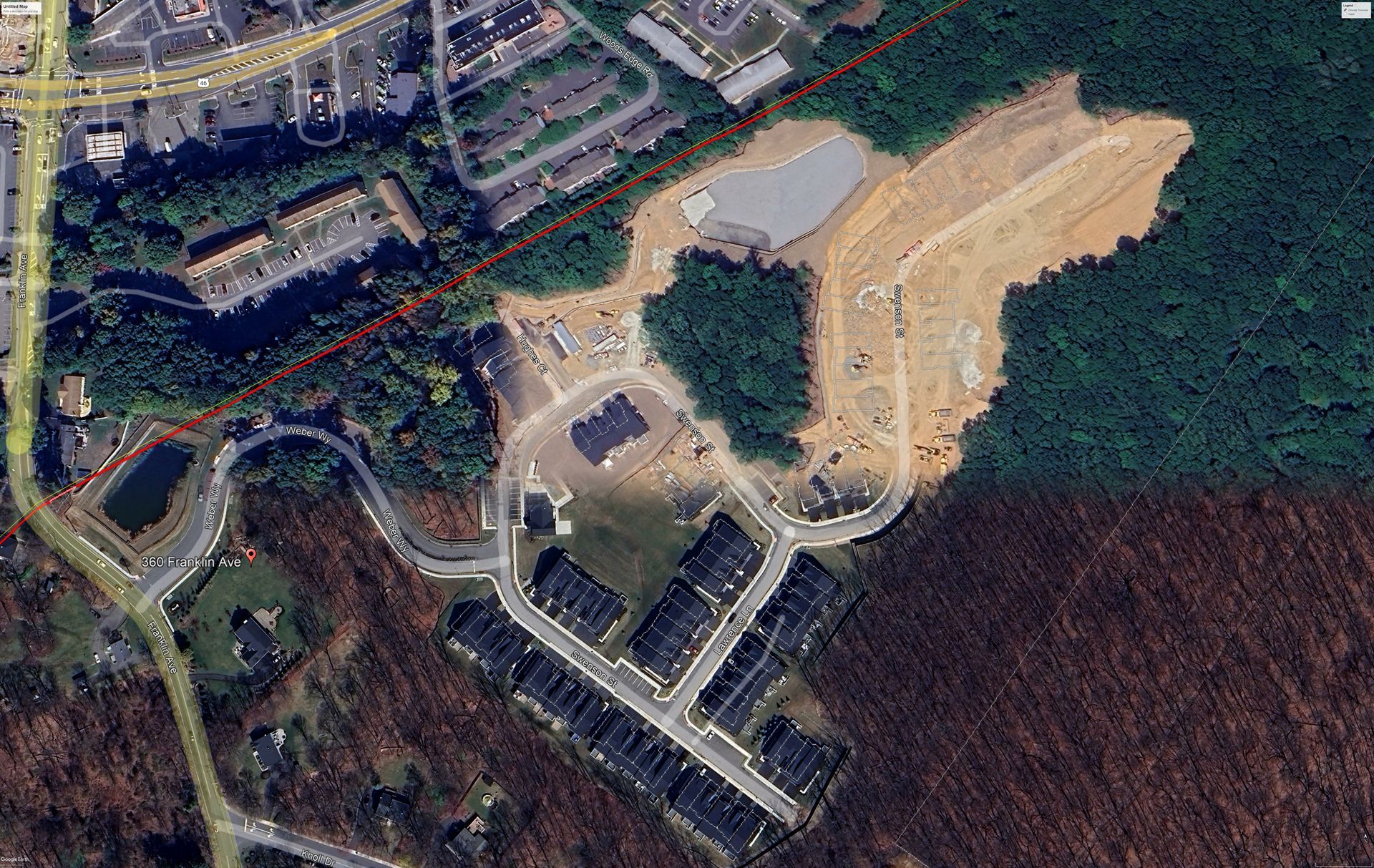A Local Perspective on a Statewide Challenge
Let's Talk About Affordable Housing
If you’ve lived in Denville for a while, you’ve probably noticed a surge in new development — and like many of you, I’ve been wondering:
How are these projects being planned?
And who are they really serving?
There’s a lot of confusion about affordable housing mandates in New Jersey, and for good reason. This is a complex issue with legal roots and real community impacts — and I believe residents deserve better information and a stronger voice in the process.
The Meadows complex on Franklin Rd. This complex has caused one of the more dangerous land shifts in town (Credit: Google Earth). Use the slider to see the before & after.
What is the Mount Laurel Doctrine?
Under New Jersey’s Mount Laurel Doctrine — named after a landmark series of court rulings — every municipality is required to provide a fair share of affordable housing. These rulings stem from the idea that exclusionary zoning practices, which keep low- and moderate-income families out of certain towns, are unconstitutional.
To comply, towns must adopt housing plans that include affordable units — and in recent years, these plans have been enforced through the courts. Many municipalities, including Denville, have faced legal pressure to approve development projects that include affordable housing.
Where Denville Stands
In Denville, this has translated into large-scale developments like:
MASON RIDGE
96 four-bedroom townhouse units. 24 designated as affordable. 20 acres of mature forest clear-cut.
THE RAM PROPERTY
116 units. 24 designated as affordable. 18 acres of mature foresr clear-cut. More than 7 years of litigation and construction, to date.
GLENMONT COMMONS
65 townhouse units. 10 designated as affordable. 13 acres of mature forest clear-cut. Resident opposition.
THE MEADOWS
12 affordable units. Placed in an extremely dangerous location with limited access to Franklin Road.
WHY IT'S A HARD PROBLEM
Developers & Litigation
Balancing the legal requirements of affordable housing with local infrastructure limits, environmental concerns, and neighborhood character is genuinely challenging. The law doesn’t allow towns to simply say "no" — nor should it. But it does require towns to plan proactively and creatively.
The problem we face now is that Denville’s current leadership is letting developers take the lead, using profitability arguments to shape projects instead of pushing back to ensure smarter design, meaningful affordability, and community benefit. In some cases, we’re clear-cutting forests and still falling short of our affordable housing obligations — which helps no one.
What We Risk Without Proper Oversight
When development is driven more by profit margins than planning, we end up with:
Overburden
Schools & infrastructure overload, leading to higher taxes for capital improvements
Flooding
More impervious surface means less drainage.
Deforestation
Loss of greenspace and neighborhood character as developers target undeveloped parcels
Loss of Voice
It is becoming commonplace to act against the wishes of residents.
What I'm Hearing From You
Talking to neighbors across Ward 1 - in Cedar Lake, Rock Ridge, and beyond - I keep hearing:
We're not against affordable housing - we just want to be a part of the process.
Why does it feel like these decisions are made before we even know about them
We need leadership that stands up for residents, not just developers
My Commitment to You
Cameron "Cam" Morissette
If I’m elected to the Township Council, I’ll work to:
- Involve the public earlier in the planning and zoning process
- Push for housing that truly fits Denville’s character and capacity
- Support affordable options that are integrated thoughtfully into neighborhoods
- Protect our green space, infrastructure, and quality of life
Affordable housing is a moral and legal obligation — but we can meet that obligation without losing what makes Denville special. We just need leadership that’s willing to stand up, ask hard questions, and insist on doing better.
Let’s build a Denville where everyone has a place — and everyone has a say.

